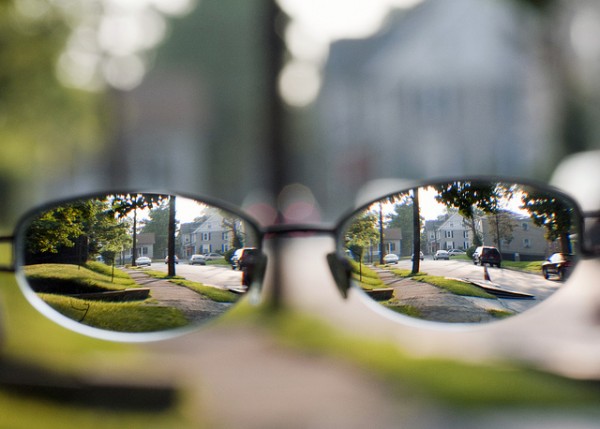How to Make a Difference Even When Your Brain Lies to You
Why do you believe what you believe?
Are you able to see truth? Or do you believe what you are convinced you are supposed to believe in order to conform?
Does your brain sometimes lie to you about what you actually see?

photo by haglundc
The Power of Conformity
I recently read about conformity and the perception of what is true in Susan Cain’s best-selling book Quiet (affiliate link).
A now famous study in the 1970’s by Solomon Asch showed that the perception of truth is heavily influenced by what others believe to be true.
In the study, volunteers were given a simple task. They were shown different lines on a card and each person was asked to say which line was the exact length as the sample line. There was no tricks. Like an easter egg hunt for 3 year olds, the answers were made to be obvious.
Initially they were asked by themselves. In this setting the correct answer was given 95% of the time.
But then the researchers changed things. Volunteers were tested again, but this time in a group. Everyone in the group would offer an answer. But everyone else in the group was acting. The actors gave the wrong answer on purpose pretending they believed their false answers were true.
I’m sure you have already guessed what happened. These same people who had just given the correct answer 95% of the time now only gave the correct answer 25% of the time.
It was as if what they were seeing had somehow changed.
Lying to Yourself
But a bigger question remained. Why did the people in the study conform? Is this merely an issue of peer pressure? Was it because they wanted to fit in and feared what others thought of them? Or did they give what they felt to be correct answers?
Did their brains actually convince them that the wrong answers were right?
A similar experiment was conducted in 2005 at Emory University, but this time MRI imagining was utilized to measure brain activity. The same results were confirmed. Volunteers gave the correct answer most of the time by themselves, but when placed in a group in which actors (and in this case computers) purposefully gave the wrong answers, the volunteers conformed.
Their ability to answer correctly seemed to change. And this time the brain activity on MRI suggested a reason why.
If the volunteers were simply choosing the wrong answer on purpose to fit in, then researchers would have expected the part of the brain that deals with decision making to show increased activity. It didn’t.
Instead the part of the brain that deals with vision and spatial reasoning did. Based on this, the researchers surmised that the participants who gave wrong answers actually believed them to be true. They weren’t lying. They were answering based on how they perceived what they were seeing.
They were trying to see the truth. But they couldn’t.
Perception of Truth
Although there are many unanswered questions offered by these studies, they do suggest something to us about ourselves.
Your ability to see the world for what it is, is limited. It can even change without your noticing. You can’t always trust what your eyes see.
What you see, what you experience, what you feel, may not be so much what is there, but what your brain wants you to see and experience and feel.
An even bigger question remains.
If the study is accurate, how can we know anything is true?
How Do We Change the World Without Truth?
When some set out to make a difference in the world, they often do so armed with some sort of truth. Sometimes it is a new scientific breakthrough (like the ones mentioned above.) Sometimes it is a truth given from a religious perspective. Sometimes it is a personal philosophy told through a dramatic story.
The hope is that knowledge and truth will open blind eyes and open deaf ears. But how can you confidently assert truth when you can’t be certain your brain isn’t lying to you?
Since your perception of truth is unreliable, the only way you can change the world is through love. (Tweet that)
Love always makes a difference.
Having someone reach out to you and try to understand you and to care for you, especially when it is unconditional and illogical, is one of the truest things any of us can do in life.
Love that gives, love that sacrifices, love that is unconditional, love that is selfish is true.
Do you struggle with the perception of what is true?
You can leave a comment by clicking here.
